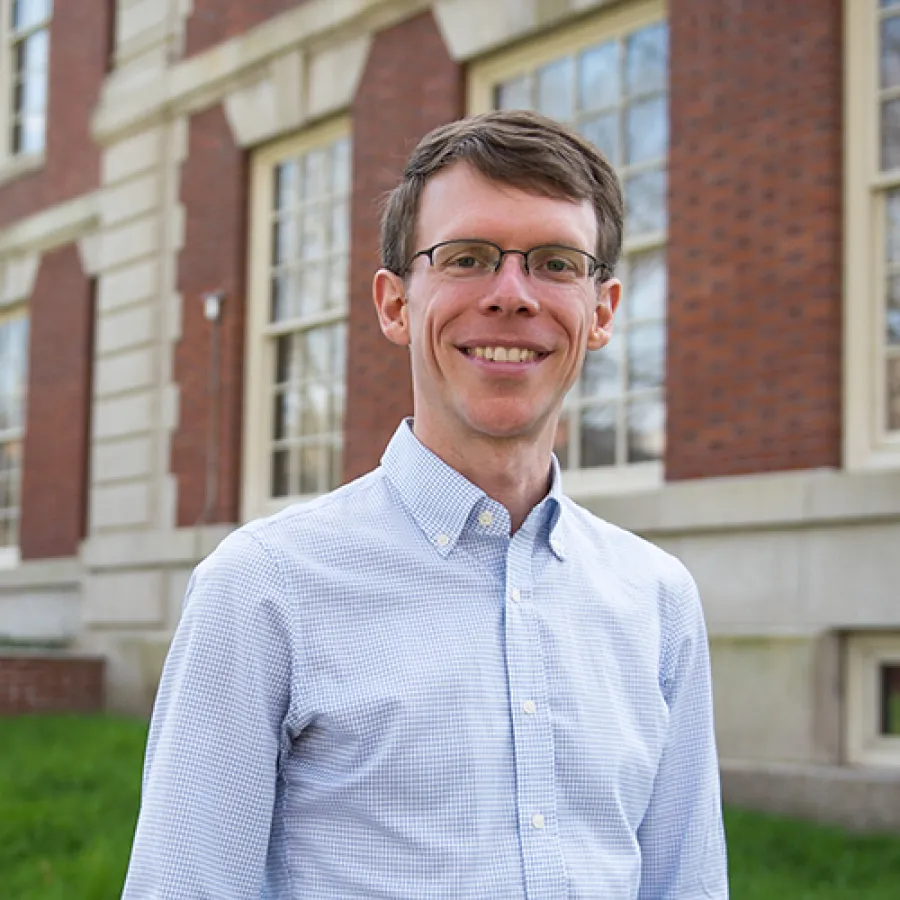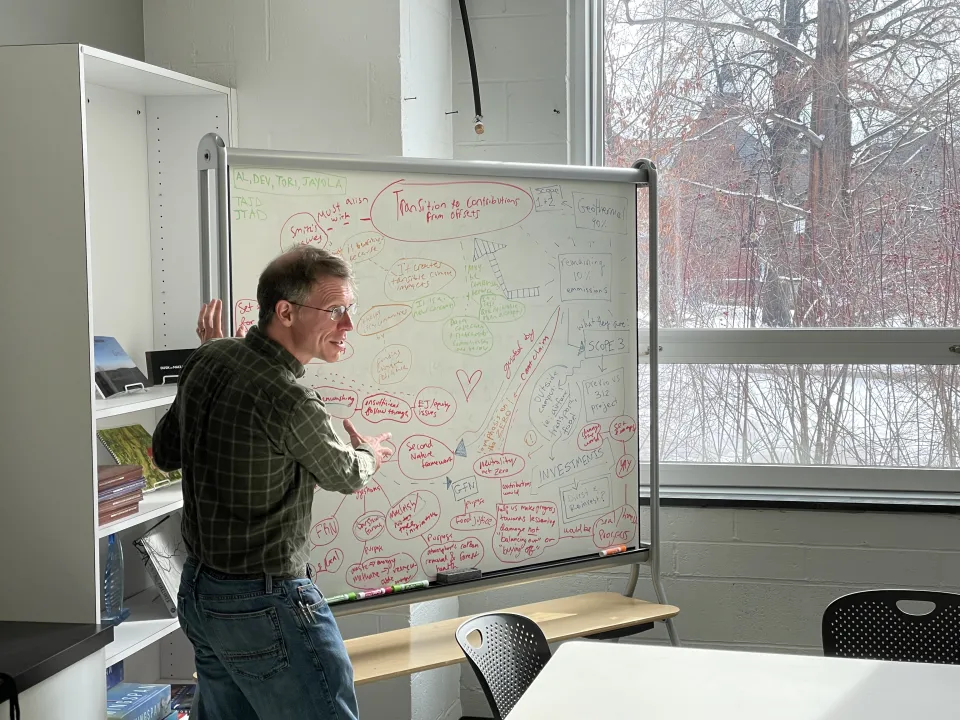Being a Leader In Climate Action
CEEDS Research

Published February 13, 2025
Alex Barron is a scientist by training, with an undergraduate degree in chemistry and a Ph.D. in ecology and evolutionary biology. But during his graduate fieldwork in the Panamanian rain forest, Barron had an epiphany that would change his professional life: “As an ecosystem ecologist, I was reading a lot of the research on climate change and about what the likely impacts would be. It became clear to me that the problem with climate change was not that we needed more science to tell us that climate change was going to be really bad. The problem was a policy problem and a failure of leadership in institutions.” Soon thereafter, Barron signed up for a fellowship that sent scholars with science PhDs to work in the federal government. “One month, I was in a rainforest training a postdoc and collecting samples,” Barron says. “The next month, I was in a suit on the Senate floor introducing legislation.”
Barron spent the next eight years in Washington, working in Congress and then as a political appointee at the Environmental Protection Agency, before coming to Smith in 2015. He was drawn particularly to Smith’s focus on interdisciplinarity and its willingness to move beyond the theoretical when it came to addressing climate change. By the time Barron arrived, Smith had already signed a climate commitment, set a target date for carbon neutrality and formed a study group on climate change. Barron was able to participate in the study group process and use his policy background to help inform decision making. “From my perspective as a policy scholar,” Barron says, “there’s a lot of overlap between figuring out an EPA regulation on carbon pollution from power plants and a Smith College action to decarbonize campus. They're both policy problems with technical and institutional components. It’s just a question of scale.”
This is Barron’s second stint as a Center for the Environment, Ecological Design and Sustainability (CEEDS) faculty fellow. During his first fellowship in 2019–20, he and his students assessed what an effective higher education response to the climate crisis might look like. They looked at the ways that colleges and universities were trying to reach carbon neutrality and “whether those approaches really rise to the occasion of what we need at this moment.” What Barron and his students learned is that most institutions claiming to have achieved carbon neutrality “had not really made the big infrastructure changes that we need institutions to be making.” For example, most schools claiming to be carbon neutral hadn’t switched to carbon-free heating on campus. Instead, they were primarily buying carbon offsets, meaning they were “paying someone else to reduce emissions in the hopes that those projects are providing equivalent climate benefits. That approach has real challenges from a scale perspective, from an environmental impact perspective, and from a justice perspective,” Barron says.
Prof. Alex Barron teaching a class.
In his current work as a CEEDS fellow, Barron and his students are hoping to tell “a more affirmative story,” about schools that have made the big institutional changes needed for truly addressing climate change. He’s hoping to “learn some lessons about what it means to be a leader in climate action . . . so that we can help schools take climate actions that are going to be truly impactful and not just a paperwork exercise.”
Barron’s current research has several threads, all trying to “really broaden the lens of how schools think about climate action.” One thread looks at how institutions “might support more engaged models of scholarship.” He notes that publishing peer-reviewed articles and academic books is the primary research activity scholars are rewarded for, through tenure in particular. Barron notes that there have long been calls for there to be a “bigger tent of what’s considered robust scholarship worth rewarding,” and Barron and his students are trying to assess whether that more engaged scholarship is indeed being rewarded during the tenure process. His goal is to give schools a toolkit to help “empower faculty to be more engaged in social problems outside the walls of the institution” while also being rewarded for it via tenure and promotion. For Barron, “issues of environmental justice and racial justice deserve urgent and thoughtful engagement . . . if this work is valuable in society, then we should encourage scholars to do it throughout their careers.”
Another thread of Barron’s current work is on “climate contributions,” an idea still in its early stages of practice. Barron notes that institutional climate goals usually “treat every climate action as a commodity; any ‘ton’ of carbon emissions is considered the same as any other. And we know from the research that that's not true.” Investing in a geothermal system, for example, helps in multiple ways. Not only is the emissions reduction more certain, but “taking a leadership role like we have at Smith and deploying this new technology and sharing it with others has more leverage on other people's climate actions than just buying a bunch of carbon offsets.” Another issue is climate justice: “Offsets can allow air pollution to continue to impact vulnerable populations, for example.” In addition to decarbonizing as much as possible, an institution might think about ways to invest in their local or regional community in climate-forward ways. These community options might not necessarily “pencil out to a ton-for-ton reduction. But they focus on helping to move society as a whole towards our climate goals . . . Climate is a really complex problem and just counting tons is not always the right way to think about how to get big systemic changes,” Barron concludes.
Barron is particularly grateful that the work he’s done as a CEEDs fellow has allowed others to follow: “One of the things that has been really gratifying about the work that I've been able to do as a CEEDS fellow is that I hear from sustainability staff and faculty at other institutions who say, ‘we used your research to help push our institutions to take climate action.’ That's the kind of role that I want our research to be playing.”
